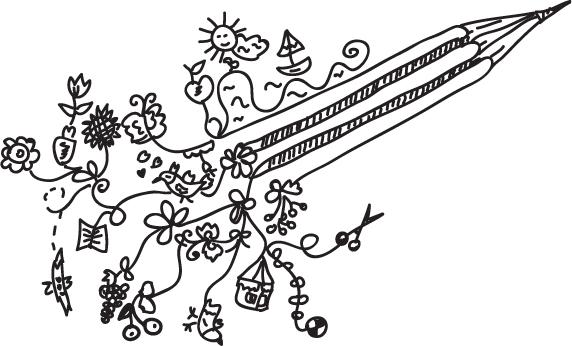

You pull into the parking lot of your favorite bookstore, knowing that this time it’s not going to be just to meet your buddies. Someone else is expecting you—YOUR FANS! You keep your sunglasses on as you walk in the front door, head down, but the manager recognizes you anyway. You try to finish your last call as you are whisked away to the greenroom, offered your favorite drink, and escorted to the book signing table. It’s covered with a red velvet cloth, piled high with copies of YOUR book, and there are scores of fans jostling for position behind the velvet ropes to make sure they get their books signed by the author—YOU!
Cameras flash, your smile dazzles. You whip out your favorite pen and start signing as fast as you can, murmuring words of gratitude in response to the exclamations of love and adulation from each reader.
Is this what it’s like to be a writer? You bet! Okay, maybe it’s not always like this—but it does happen. And, believe it or not, it can happen to you, especially if you start thinking of yourself as a writer now and doing the things real writers do. This book will help you—we promise.
Keep that thrilling, ultimate scenario in mind, but let’s get a bit more realistic for a few minutes. Look over the list below and circle what you really think it’s like to be a writer.
1. lonely
2. cool
3. strange
4. incredibly exciting
5. hard work
6. not like real work at all
7. boring
8. a life of riches
9. a life of poverty
10. people love you
11. people think you’re a geek
12. fun
13. frustrating
14. fantastic
15. scary
16. hilarious
17. eeeyew!
Let’s see what you think about writing:
• If you circled just even numbers (2, 4, 6, 8, etc.), we love you! You have a positive attitude about writing. And you’re right . . . being a writer can be all of those things! (Although, to be honest, not all the time.)
• If you circled just odd numbers (1, 3, 5, 7, etc.), you’re right too. Being a writer can be tough, but it’s never as bad as that whole list. At least, not if you read this book first!
• If you circled all the items on the list, you are right on target—being a writer is often like all of these things at one point or another.
If you like to write, you are one of the luckiest people in the world. Writers shape thoughts into words, and those words can inspire, motivate, teach, and entertain those who read them. Have you ever read something that made you cry? If I Stay, Walk Two Moons, or Charlotte’s Web? Or maybe a story in a magazine about a terrible famine? How about something that made you angry? Scared? Happy? How about a book that you just couldn’t put down and had to finish under the covers long after midnight . . . perhaps a Harry Potter tale?
All of these stories started with writers. There are as many different kinds of writers as there are stories to tell. Writers don’t just write books either. When you watch ESPN to catch the sports scores, the reporters on those shows read scripts written by writers. Or when you watch your favorite sitcom, a writer did that as well. The words you read in advertisements and hear in the audio for video games were all carefully chosen by writers. There are novelists, bloggers, poets, playwrights, screenwriters, reporters, medical writers, copywriters, and technical writers, just to name a few. And the good news is that you can make a living as a writer. Your writing can take you all over the world if you choose, or you can create books in the comfort of your own home—even in your pj’s if you want!

If you like to write, you can use your talent to try lots of different things. All it takes is a desire to write and pen and paper—or a laptop. Throughout the book, you’ll hear from lots of different kinds of writers, including writers your age, about what they do, how they got there, and why they love writing.
What do the following writers have in common?
Sylvia Plath
James Joyce
Edgar Allan Poe
Langston Hughes
F. Scott Fitzgerald
Louisa May Alcott
Ernest Hemingway
Walt Whitman
Stephen King
Cameron Crowe
S. E. Hinton
Christopher Paolini
Kate Griffin
Amanda Hocking
If you guessed that they were all published writers while they were teenagers, you’re right! They didn’t wait until they were adults to go for their dreams, and you don’t need to either. Add your name to this list! There are so many kinds of writing to try and so many ways to get published as a kid, why wait?
Inspired yet? Read on and find out how you can get started right now!
